Violent, brazen, and targeted. That describes the attack on a small local business this summer.
Moments before the vandalism begins, an outside camera at the Wolfley & Wolfley law offices on First Street shows a few stubborn streetlights haven’t turned off yet. It’s early morning a block east of Swain’s, and Port Angeles is still asleep.
Then, a black sedan turns from the alley and slowly creeps across the gravel parking lot before rolling to a stop. The driver and passenger doors open. Two figures, dressed completely in black with hoods and masks, exit the car.
The passenger begins working their way along the length of the building while swinging something. They quickly smash all eight windows facing the parking lot as the driver walks toward First Street.
Inside the office, a camera shows a well-appointed lobby with two seating areas and a reception desk. No one is there because the office is closed, but two lamps cast a cozy glow across the area rugs and side tables. A minute before five in the morning, the peaceful vignette abruptly changes.
Window blinds snap against their strings, and shards of glass rain down on the floor as the first two windows are smashed. Next, the blind slats of a third window erupt inward as splinters of glass sail across the lobby, bouncing off the far wall. An instant later, the houseplant on a shelf to the camera’s left shudders as a fourth window implodes.
An exterior camera shows the same moments from outside the building. First Street is empty of cars as the figure in black swings a hammer outside the lobby. The windowpanes flex, unwilling to break easily, and it takes several attempts to smash them before the tempered glass explodes onto the sidewalk.
Forty seconds after arriving, both attackers get back into the car. A moment later, it slowly turns out of the parking lot and heads east on First.
That’s just one of three attacks Wolfley & Wolfley’s law offices have suffered within nine months. To watch videos of this and other incidents, or to try and identify the vandals and earn a $5,000 reward, visit Joseph Wolfley’s Facebook page here.
Property destruction is fine
The destruction of the law offices has reignited a debate, and locals are revisiting a years-old Facebook post made by an elected official.
When he made those remarks, Mike French was serving on the Port Angeles City Council. Since then, he’s been elected as District Three’s County Commissioner — an area that starts on the west side of Port Angeles and extends to the coast.
CC Watchdog contacted Commissioner French to ask for context about the Facebook post and received a prompt reply:
I believe it was a Facebook conversation from 4-5 years back, and the point I was making was that throughout American history some amount of property destruction has been acceptable (and if not acceptable, understandable or forgivable) during periods of political unrest/protest. The Boston Tea Party is of course the quintessential example - a moment of protest that we celebrate as a country that was in reality wanton property destruction. Our country was built on the premise that the people should be able to protest their rulers, and I do not believe that property destruction categorically discredits a political protest - obviously there's a line somewhere between a protest and a riot, but in the moment that's sometimes a hard line to draw. It's much easier in hindsight.
My secondary point was about the difference between harm to humans and harm to property - we should always value human life above property (not to say that we shouldn't value property or protect property rights, just that human life is innately more valuable).
Mike French
Clallam County Commissioner
Taxation without representation
American colonists throwing tea into Boston Harbor was a protest about “taxation without representation.” The colonists were frustrated that they did not have a seat in British Parliament but were being taxed without having a say in the matter. The event isn’t celebrated for “wanton property destruction” as French suggests — the Sons of Liberty didn’t burn down Boston or destroy local businesses — they wanted to send a message across the Atlantic Ocean to the King by throwing the tea, for which they were being taxed, into the harbor.
Drawing comparisons to the Boston Tea Party and the “premise that people should be able to protest their rulers” could be problematic for Mike French and his fellow commissioners. Although French was elected to represent public interests, he increasingly uses his position to represent special interests. This month, he prepared a presentation for his fellow commissioners on behalf of organizations that would benefit from a tax increase he has proposed, and he’s considering imposing it through a “councilmanic process” — a method that would bypass a vote of the people.
French’s approval of property destruction to initiate change has other ramifications as well…
Representation without taxation
The opposite sentiment that ignited the Boston Tea Party 250 years ago is “representation without taxation,” a concept in which individuals or groups have influence and voting rights in the government’s policy-making process without being required to pay taxes.
A cornerstone of the democratic system embraces the principle that those who are represented in government also contribute to its funding through taxes. However, there are exemptions. Certain groups, like non-profit organizations or religious institutions, may have representation without paying taxes. Individuals or groups may receive tax exemptions for various reasons but still retain their voting rights (veterans and low-income individuals, for example).
There’s another exempt group, too.
Native American tribal members vote for commissioners, legislators, representatives, governors, and the president. They attend school, use libraries and hospitals, and benefit from emergency services — it’s their right; they are US citizens. However, while most citizens must fund those services by paying a property tax, many tribal citizens and tribal corporations are exempt.
Representation without taxation causes financial strain on governments when certain groups are represented but do not contribute to the tax base. This can lead to budget deficits and underfunded public services, which we see locally. The failing hospital just doubled the amount it collects from property owners, a fire district levee recently failed, and Clallam County is currently facing a historic budget deficit. County leaders are considering cutting services and raising fees, creating tension between taxpayers and non-taxpayers. In the meantime, the amount of land falling off the County tax rolls and into tribal trusts is accelerating.
The problem with picking favorites
If a significant portion of the population is exempt from paying taxes but still has voting rights, it might result in government policies that favor non-taxpayers at the expense of those who pay taxes. Like parents picking a favorite child, this creates a sense of unfairness and division.
The favoritism has extended to the Sequim School District, where parents of Black, Asian, Hispanic, and White children must pay nearly 30% more than tribal members to watch their kids play football.
The private sector is picking favorites, too. In 2021, local internet provider Olypen offered a 30% race-based discount to customers seeking computer repair and support. The following year, Olypen announced that several “legacy accounts” were receiving internet services below cost, and rates increased by 40%.
The sense of unfairness is amplified when those not paying taxes influence government and politicians to their benefit. The Washington Public Disclosure Commission, a state agency, shows how tribal governments influence politicians with campaign contributions.




Peaceful protest
If a group of citizens felt excluded and underrepresented, is Mike French saying it’s okay to “protest their rulers” and destroy property? Suppose citizens were tired of their elected representatives holding meetings on a sovereign nation’s land where laws promoting transparency and accountability didn’t apply. Or imagine if people were tired of their tax dollars being funneled to an organization that funded over half of a politician’s last campaign. Would it be “acceptable, understandable, or forgivable” to engage in domestic terrorism against elected officials in an attempt to make “actual change happen?”
Absolutely not. Despite French’s assertion that property damage is “usually the only way we’ve ever seen actual change happen,” examples abound of change being accomplished through peaceful means.
The primary protest of the Montgomery Bus Boycott, sparked by Rosa Parks’ refusal to give her seat to a white passenger, wasn’t violent or destructive. Their goal was achieved when Black citizens organized and refused to ride the buses for a year. Their protest paved the way for further civil rights victories.
In 1987, when activists thought that our country’s leaders were ignoring a disease that was killing tens of thousands of Americans, they didn’t destroy Washington D.C. — they used 54 tons of fabric to make 50,000 panels that covered the National Mall. The AIDS quilt is credited with influencing government policy that increased research funding.
We have the constitutional right to make change through peaceful protest, but we don’t have the right to destroy property.
The price of destruction
“I despise both. It’s so meaningless,” said Krystal Chards when asked if it mattered whether the damage done to her business had been done in protest or as an act of vandalism. “Whether they're supporting a cause or just destroying property, it’s irrelevant.”
Krystal Chards isn’t her real name, but she wants to stay off the City of Port Angeles’ radar because she’s criticized how city leaders are handling the drug and homeless epidemic downtown. “They’ve put millions into the arts hall (Field Hall & Arts), but where’s the fund that reimburses small businesses for all the damage going on? I'd like to see some of the $2 million the county commissioners just gave nonprofits for homeless luxury apartments go toward struggling businesses. It could repair damage caused by the homeless.”
Most of the damage done to Krystal’s building, including broken windows, graffiti removal, and cleaning up human waste and drug paraphernalia, was done to an office that has been empty since a business left Port Angeles for good.
“There was nothing to steal; they didn’t have to throw rocks and chunks of concrete through the windows to see that,” said Krystal. “There was a homeless guy sleeping under the broken windows when the police got here, but no one knew if he was the one that did it.”
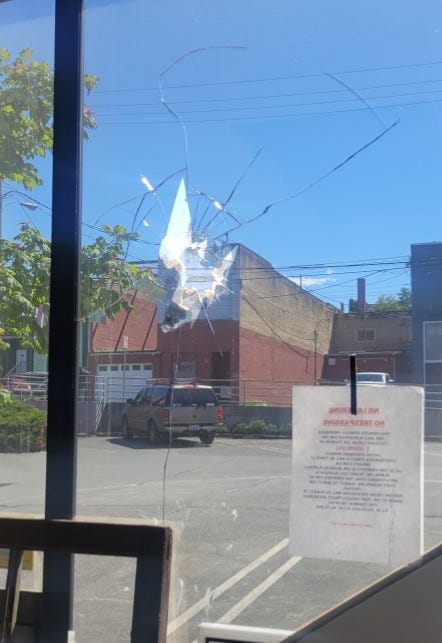
“A different night, they broke the gate open and kicked in the door of [business name redacted]. He’s ending his lease and moving someplace safer in town.” Krystal has paid out-of-pocket for the damage, now exceeding $20,000. “I have a $10,000 deductible and don’t want my insurance to drop me.”
Krystal also spent over $2,000 on cameras and installation but wishes she could afford private security. “Most of all, I just wish there was some accountability.”
“Thirty years ago, it wasn’t scary,” Krystal reminisced. “We’d get off work, get the midnight breakfast at Jury’s Inn, and feel safe. But in the last twenty years, things have gotten more dangerous.”
She says drugs have a lot to do with the decline of downtown Port Angeles. “The alleys are corridors for the homeless doing business. The alleys and the back of my building are where they do drugs and go to the bathroom.” Krystal says the homeless still use her alcove to relieve themselves even though public restrooms called “Portland Loos” were installed a block away for $729,544 two years ago.
“I’ll keep at it. I’m fortunate to have other properties, so when one has a problem, I usually have income from the others to pay for it,” said Krystal, who pays $8,000 in yearly property taxes and $800 a month for insurance. However, the unforeseen repairs were particularly impactful: “I have a 16 and a ten-year-old, and this money came out of their college tuition.”
Krystal has seen a change happen on the Port Angeles City Council and in the County Commissioner boardroom. She has closely watched her former city council member, Mike French, during his political rise. “He had a popular restaurant downtown — if he had to pay $20,000 for damage, I think he’d have a different point of view. He might be in charge of the county, but he’s not the one I want protecting my private property rights.”
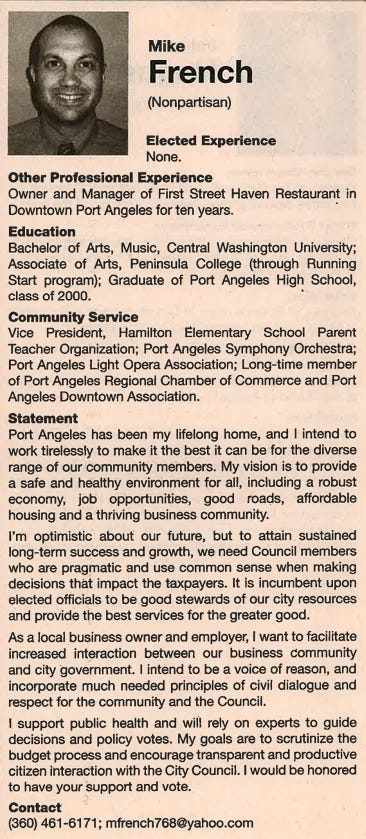
Towne Road update
The completion of Towne Road has fallen behind an additional month and is now estimated to be complete by the end of October. Read the County’s most recent update here.

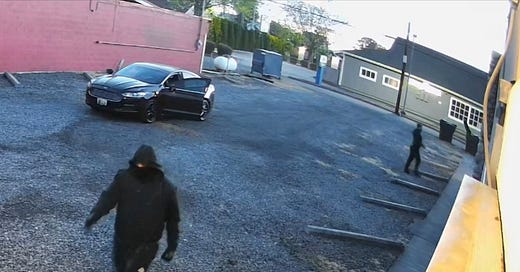



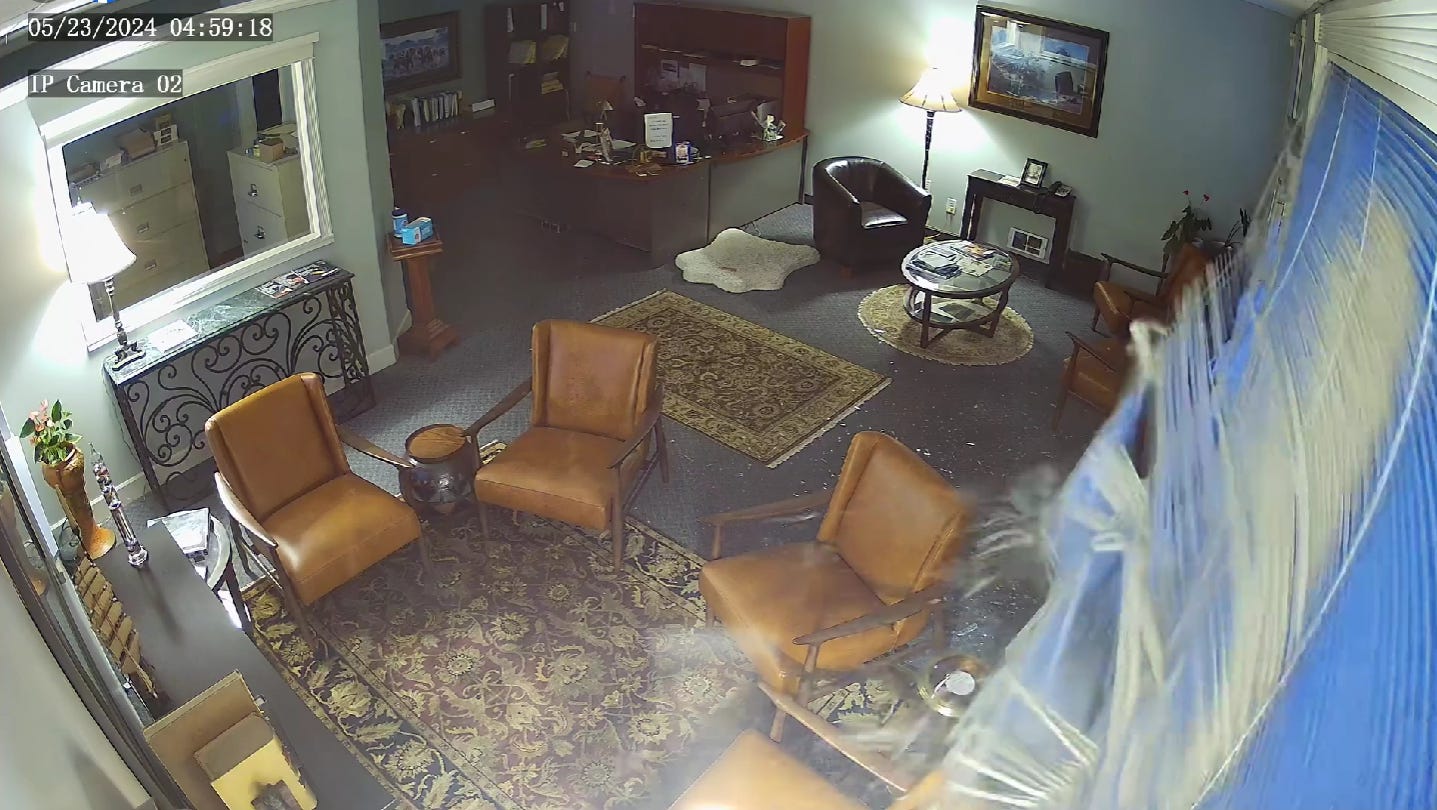
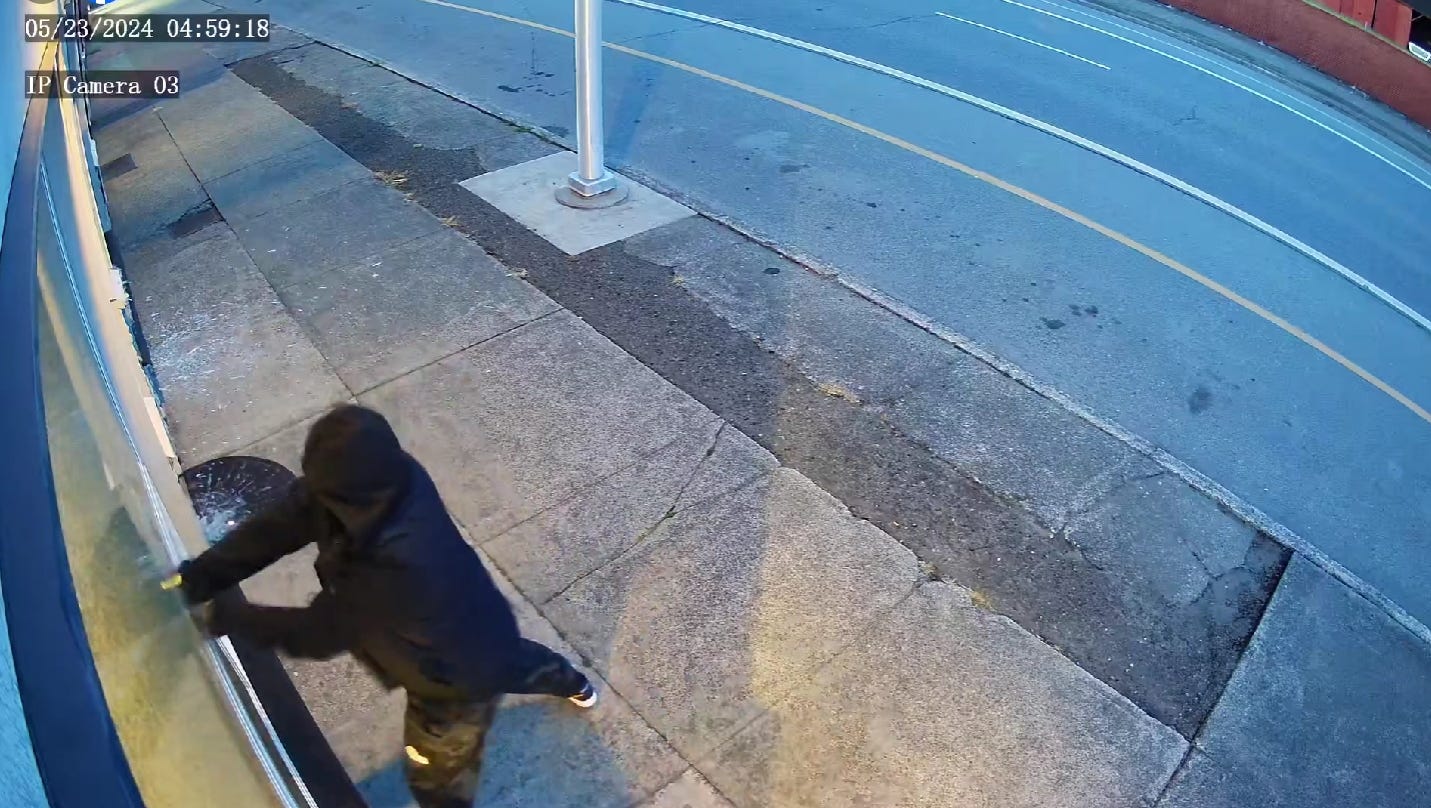
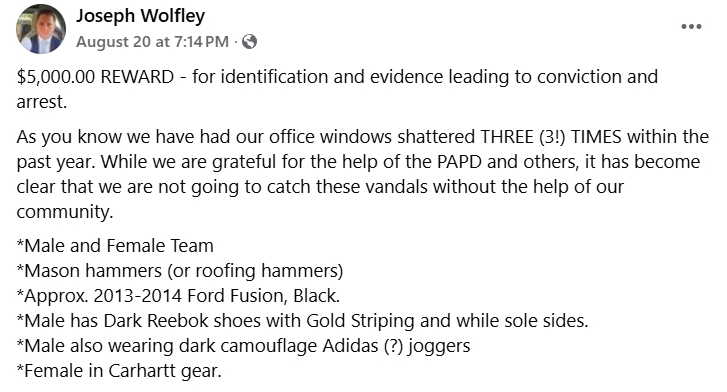
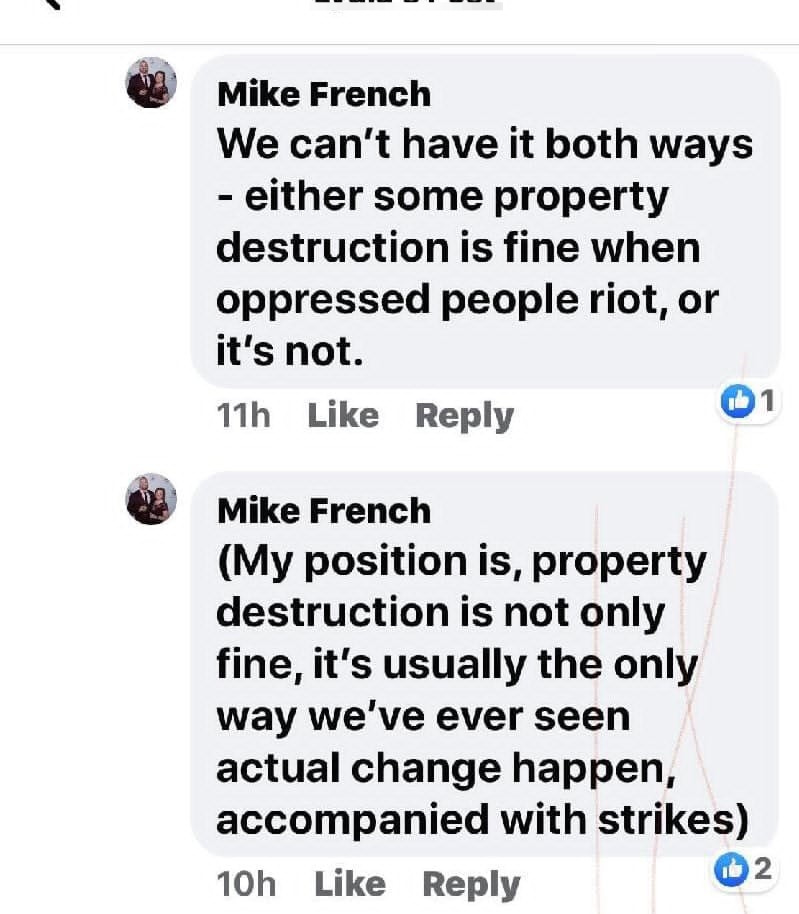



So much to say and so many comments running through my head I can't pick one, or even two. So I'll just say thanks Jeff, for your hard work and yet another great eye-opening article.
Divide and conquer by our pathetic "leaders" working in Clown County!